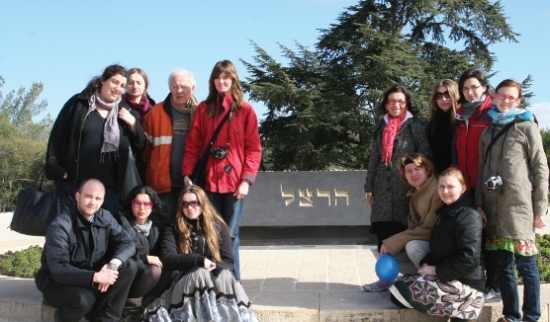
Returning to live in Israel after spending many years in Canada, I had the good fortune to meet a remarkable woman with an even more remarkable story to tell. Professor Amira Eran teaches Judaic Studies at Levinsky College of Education in Israel, and for the past two years has headed their new International School.
One afternoon I witnessed a group of students, so intensely engaged in a discussion of the Holocaust that I dared not disturb. Who were these students? They did not look Israeli and they did not have a recognizable accent as they spoke fairly fluent Hebrew. Some had tears in their eyes; others looked down at the floor as if they needed some privacy as they were experiencing strong emotions. This was a group of 15 students from Poland, non-Jews who came to Israel to learn about Judaism, Israel, and the Holocaust. It was a transformational experience for these young Poles, but oddly enough, the meetings with their Israeli counterparts and teachers clearly impacted the Israelis as much as the Poles.
The idea of this seminar came from Amira Eran, herself the daughter of a Holocaust survivor. She told me about her family background, her motivation for becoming a scholar in Judaic studies and education and the impetus for this program, along with some unexpected outcomes.
“My mother is a Holocaust survivor. She was 18 years old when she came to Israel, to a kibbutz. Most of her family perished in Auschwitz, as did my husband's family. My mother had one brother who became ultra-orthodox while in the camp, and she and another brother managed to survive by using a stolen Christian identity. All three met after the war, but unlike in some of the movies, they were unable to reconnect as siblings and went their separate ways. I grew up on the kibbutz where we were socialized to believe that this horrific experience for the Jewish people left a painful vacuum that was simply unspeakable. People refused to talk about it. The term “second generation syndrome”, refers to the pain, the anger, the tears and the feelings of total devestation that my mother could not talk about – with me or with anyone else. At an early age, although I could not articulate it, it became part of me, part of my DNA. I inherited this pain and I carry it with me. I have a full and satisfying life, but that incomprehensible pain never leaves me. It is a pain that stems from being cut off from one’s family, having no grandparents and no cousins, and being brought up by parents who didn't receive any parenting...
We grew up knowing that we had to somehow address this unspeakable pain as we became adults - on a personal level with our children and on a wider scale with respect to our society. Perhaps that is one of the reasons I was determined to study Judaism - to gain an in-depth understanding of the roots of that heritage that the Nazis had tried to extinguish. I was particularly attracted to medieval philosophy because it examines a time when Judaism, Christianity and Islam were engaged in close dialogue and not in conflict. I always felt it was important to share this understanding of our roots with future generations, and what better way to do this is there than to teach teachers - and that is what I do.
The idea for a seminar for Polish students arose when Amira was visiting Poland where she met a visionary Church Father who heads an Institute for the study of the Hebrew Language in Poland. Amira was impressed with the motivation and commitment of these young Christian students to study and learn Hebrew, Israeli literature and culture, and about the Holocaust. It made her wonder if the grandchildren of Polish citizens who were spectators or actively engaged in the Holocaust also had some feelings that had never been dealt with. Thus was born the idea of a three week seminar for Polish students at Levinsky College.
“The Polish students were very interested in communicating in Hebrew. I thought that language would be the best vehicle to introduce them to Israeli culture and I tried to turn the language into a live channel of a live dialogue between real people, just as I encouraged them to visit real historical places in Israel. In the end, the students told us that their visit in Israel bridged a gap between generations and turned their ‘academic and theoretical’ knowledge of Israel into a live experience of sharing with Israeli students, the great- grandchildren of Polish Jews who had been extinguished, and the grandchildren of survivors of the Holocaust – people with whom it was thought impossible to ‘build a bridge’ (Amira)”.
The program not only impacted the Polish students. Their Israeli counterparts underwent a life-changing experience through their participation. Israeli and Polish students helped each other to reach the survivors. The Polish students served as a mediating link between the old Jewish survivors and the Israeli students since they were able to speak to them in their mother-tongue and translate for the Israeli students. Both the Israeli and Polish students documented these chilling testimonials and together created a vivid blog in which they inserted the survivors' stories.
The amazing outcome of the program is the fact that this work will continue. The Polish students are going to research their families in Poland and try to locate and collect biographical reminiscences that will allow them to complete the stories that they heard in Israel. The project with Polish students is continuing. It is called 'Hantzacha' or commemoration, and it is part of the commitment to turn the experience of the Holocaust from an individual into a collective story.
This project with the Polish students is a good example of the programs offered by the Lewinsky College of Education. Their aim is to widen the perspective through which one looks at “the other”, and to make it friendly and accepting. This philosophy guides all their international programs, whether the focus is on early childhood education, global education, or even the ulpan. As Professor Eran explains: “Education is an attitude as much as it is an academic discipline, and I feel that our task at the International School is to make sure that no ghetto walls, theoretical or cultural, divide us from students and scholars from abroad”.
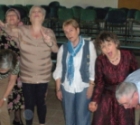 Let’s have a bit of Playback
Let’s have a bit of Playback-1372659501.jpg) Buying New Construction in Israel
Buying New Construction in Israel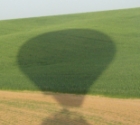 A lot of hot air - ballooning
A lot of hot air - ballooning (302x450)-1451381711.jpg) Odeon Oscar
Odeon Oscar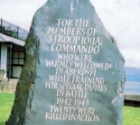 The Jewish Connection
The Jewish Connection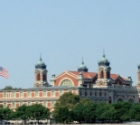 ellis island
ellis island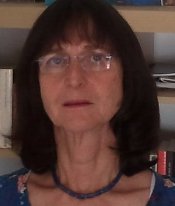 Rena Shimoni
Rena Shimoni